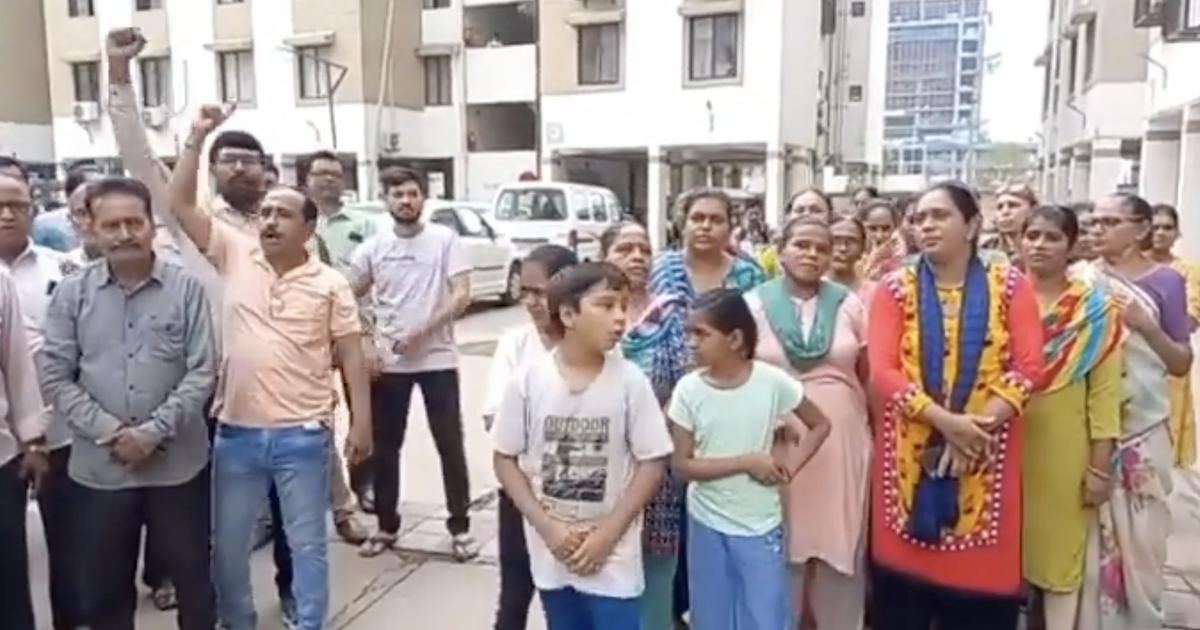Inclusive Living Challenge: Muslim Resident Faces Opposition in Vadodara Housing Complex

TCN News
New Delhi: A 44-year-old Muslim woman employed with the Ministry of Entrepreneurship and Skill Development eagerly anticipated moving into a dwelling unit allocated to her at Harni in Vadodara Municipal Corporation’s low-income group housing complex under the Mukhyamantri Awas Yojana back in 2017. She looked forward to residing in an inclusive neighborhood with her then-minor son.
However, before she could even settle in, as reported by The Indian Express, 33 residents out of the 462 units in the housing complex lodged a written complaint with the district collector and other authorities — objecting to her presence solely based on her Muslim identity, citing potential “threat and nuisance”.
The woman, the lone Muslim allottee in the complex, revealed that the protests initially surfaced in 2020 when residents wrote to the Chief Minister’s Office (CMO) seeking to invalidate her house allotment. Although the Harni police station recorded statements from all parties involved and dismissed the complaint, recent protests resurfaced on June 10.
Expressing her dismay, the woman shared her upbringing in a mixed neighborhood in Vadodara, emphasizing her family's rejection of the concept of ghettos. She expressed concern for her son, now in Class 12, stating that discrimination would have a detrimental impact on his mental well-being.
The complaint submitted by 33 signatories to the District Collector, Mayor, VMC Commissioner, and Commissioner of Police in Vadodara demanded the invalidation of the beneficiary's dwelling unit allocation and her relocation to another housing scheme, labeling it a "representation in public interest."
Residents cited concerns over a potential law-and-order crisis if Muslim families were allowed to move in, describing the area as Hindu-dominated and peaceful with no Muslim settlement within approximately four kilometers. They justified their stance by claiming it was for the comfort of both parties.
While some residents expressed discomfort with a minority family as neighbors, citing religious and cultural differences, others voiced solidarity with the beneficiary, highlighting that she was rightfully allocated the flat under a government scheme.
Officials from the VMC's housing department emphasized that government schemes did not segregate applicants based on religion, and the housing draw was conducted according to norms. They suggested that the matter be resolved through mutual agreement or by approaching competent courts.
